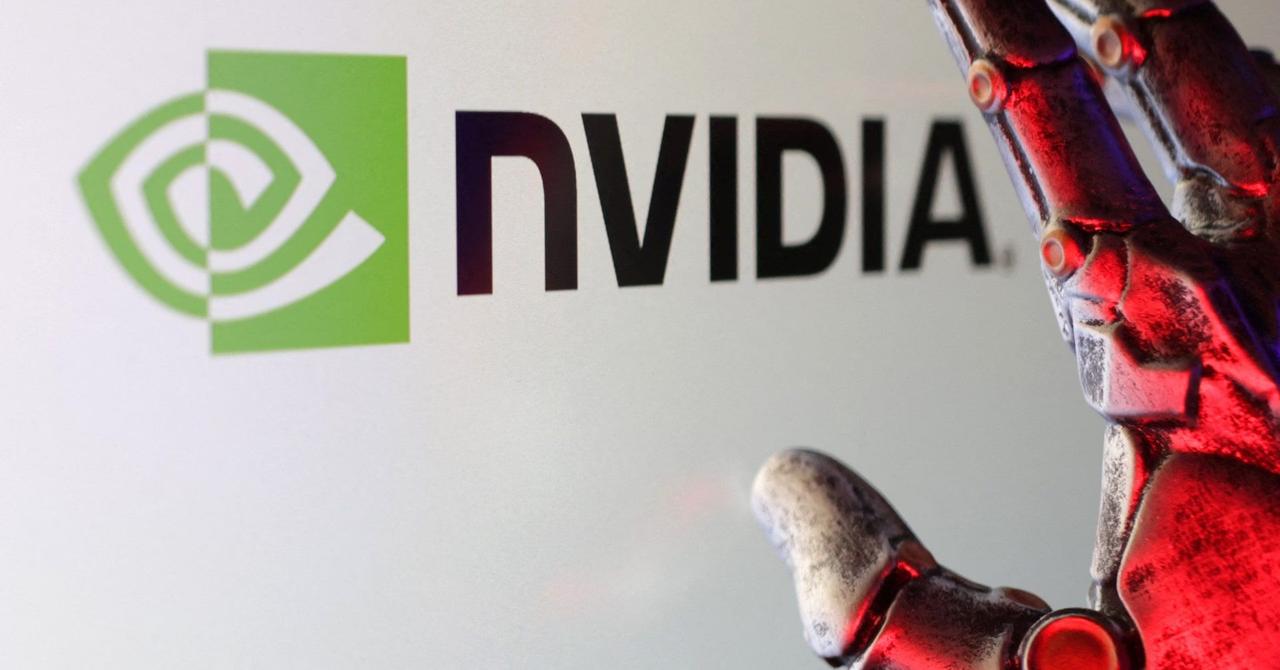Singapore Court Adjourns AI Chip Smuggling Case: Implications for US-China Tech Tensions
5 Sources
5 Sources
[1]
Singapore AI chip court case adjourned until August -- trio accused of illegally smuggling Nvidia chips to China for use by AI firm DeepSeek
A Singapore court has moved the hearings for the three people accused of smuggling Nvidia chips for DeepSeek to August 22, with the prosecution saying it needed more time to review documents and wait for responses from international parties involved in the investigation. According to Reuters, two Singaporean citizens -- Woon Guo Jie, 41, and Alan Wei Zhaolun, 49 -- alongside 51-year-old Chinese national Li Ming are charged with committing fraud. It was said that they made false representations to suppliers about the final destinations of servers and other equipment they bought in 2023 and 2024. The trio was arrested earlier this year when Singaporean authorities busted a major smuggling ring that allegedly supplied DeepSeek with banned Nvidia GPUs. This investigation was triggered by the arrival of DeepSeek, an advanced model that rivaled American-made AI LLMs, in late December 2024. The U.S. suspected that the company behind it used AI GPUs illegally acquired through the nation-state, especially after Nvidia reported that Singapore made up 28% of its sales revenue, but only 1% of its deliveries were made in-country. Chip smuggling has been going on ever since Washington announced its export controls on the most advanced AI GPUs. Tom's Hardware has reported on several instances of brazen smuggling, with one Chinese businessman even showing off their illicit haul on social media. Because of this, U.S. representatives are demanding answers from both the U.S. Department of Commerce and private companies like Nvidia. On the other hand, the AI giant denies sending GPUs to blacklisted organizations and insists that it has always compliant with export control requirements. Even CEO Jensen Huang says, 'There is no evidence of AI chip diversion,' despite numerous reports that say otherwise. Nevertheless, it's expected for many companies to have their billing addresses located in Singapore, especially as the island-nation is known to be a business hub in South East Asia. So, even though the payment may originate from Singapore, the ordered goods will not necessarily be delivered there. This makes it harder to track the final destination of controlled items, like these advanced servers -- that's why the U.S. has a proposed bill that will force companies to put tracking tech on high-end gaming and AI GPUs.
[2]
Singapore case against three on AI chip fraud charges adjourned until Aug 22
SINGAPORE, June 27 (Reuters) - Singapore's case against three men linked by local media to the illegal transfer of Nvidia's (NVDA.O), opens new tab AI chips from Singapore to Chinese artificial intelligence firm DeepSeek has been adjourned until Aug 22, the court ruled on Friday. At a hearing on Friday, the prosecution said the police would need more time to review new documents and seek responses from overseas parties in the investigations into the three men, Singaporeans Aaron Woon Guo Jie, 41, and Alan Wei Zhaolun, 49, as well as the Chinese national Li Ming, 51. They were earlier charged with committing fraud by making false representations to unnamed server suppliers about the end users of goods purchased in 2023 and 2024. The United States banned the export of high-end chips from Nvidia to China in 2022 amid concerns that they could be used for military purposes. A senior U.S. official said that AI firm DeepSeek is aiding China's military and intelligence operations, Reuters reported on Monday. Singapore Home Affairs Minister K Shanmugam said in March that the authorities had ascertained that servers involved in the fraud case may contain Nvidia chips, and that they had investigated the case independently after an anonymous tip-off. The servers were supplied by Dell Technologies (DELL.N), opens new tab and Super Micro Computer (SMCI.O), opens new tab to Singapore-based companies before they were sent on to Malaysia, although it was not clear if Malaysia was the final destination for the servers, he said. The Singapore case is part of a broader police investigation into 22 individuals and companies suspected of false representation, amid concerns that nations like Singapore have been involved in organised AI chip smuggling to China. In 2024, Singapore was Nvidia's second-biggest market after the United States, accounting for 18% of its total revenue in its latest fiscal year, a February filing by the chipmaker shows. Actual shipments to the Asian trading hub, however, contributed less than 2% of total revenue, as customers use it as a centre for invoicing sales to other countries. Reporting by Jun Yuan Yong; Editing by David Stanway Our Standards: The Thomson Reuters Trust Principles., opens new tab Suggested Topics:Artificial Intelligence
[3]
Singapore case of fraudulant AI chip shipments to China in wake of U.S. fears of military use has been adjounred until August
(Image credit: Getty Images / Brian A. Jackson/South Florida Sun Sentinel) This year we've seen a massive crackdown on AI tech shipments into China with mounting fears they might be powering the country's military. It's gotten to the point that high-end cards are being geotracked while the US continues to pressure ports like Malaysia to keep these rigs out of China's hands. Now, the latest development in a Singaporean case around the United States' campaign to cease Nvidia shipments to China has just been put on hold. Reuters states the current big case looking into illegal shipments of Nvidia's AI powered silicon has just been adjourned until August 22. The hiatus is to give police more time to review evidence and potentially seek further responses. The case points to three defendants all linked by local media with accusations around the illicit movements of this tech. The charges levelled against the three men were around making false representations to unnamed server suppliers about the end users of goods purchased in 2023 and 2024. Back in March this year Singapore Home Affairs Minister K Shanmugam stated that the case was being investigated thanks to an anonymous tip. At the time it looked like Nvidia chips might be present in the shipments, pointing to a rather big no-no with the U.S.'s current bans The affected servers came from Dell Technologies and Super Micro Computer, and were being sent to Singapore for a stop over before being forwarded on to Malaysia. It's unknown whether these shipments were terminating in Malaysia, or were intended for further transit onwards to China. The case appears to be much larger than the three men mentioned above. A broader police investigation is currently being led into 22 individuals and companies all suspected of the same kind of fraud - the misrepresentation of shipments likely in the efforts to export these AI powered chips into China against North American wishes. Singapore as a market accounts for a huge number of tech purchases every year. Last year it came second to the United States as Nvidia's biggest market, so it's no wonder such a high level of scrutiny is being levelled. That being said, while Singapore is a huge buyer, only 2 percent of the countries Nvidia purchases wind up with shipments there. Instead it's regularly used as a hub or invoicing for places all over the world, so while the purchasing is often done in Singapore, that doesn't mean any of this technology is passing through their shores. Still, we'll likely find out more about this case in late August. Until then, the authorities have this opportunity to gather more evidence and chase leads to figure out whether this fraud has taken place, and to what level.
[4]
Singapore case against three on AI chip fraud charges adjourned until August 22 - The Economic Times
The United States banned the export of high-end chips from Nvidia to China in 2022 amid concerns that they could be used for military purposes. A senior US official said that AI firm DeepSeek is aiding China's military and intelligence operations, Reuters reported on Monday.Singapore's case against three men linked by local media to the illegal transfer of Nvidia's AI chips from Singapore to Chinese artificial intelligence firm DeepSeek has been adjourned until Aug 22, the court ruled on Friday. At a hearing on Friday, the prosecution said the police would need more time to review new documents and seek responses from overseas parties in the investigations into the three men, Singaporeans Aaron Woon Guo Jie, 41, and Alan Wei Zhaolun, 49, as well as the Chinese national Li Ming, 51. They were earlier charged with committing fraud by making false representations to unnamed server suppliers about the end users of goods purchased in 2023 and 2024. The United States banned the export of high-end chips from Nvidia to China in 2022 amid concerns that they could be used for military purposes. A senior US official said that AI firm DeepSeek is aiding China's military and intelligence operations, Reuters reported on Monday. Singapore Home Affairs Minister K Shanmugam said in March that the authorities had ascertained that servers involved in the fraud case may contain Nvidia chips, and that they had investigated the case independently after an anonymous tip-off. The servers were supplied by Dell Technologies and Super Micro Computer to Singapore-based companies before they were sent on to Malaysia, although it was not clear if Malaysia was the final destination for the servers, he said. The Singapore case is part of a broader police investigation into 22 individuals and companies suspected of false representation, amid concerns that nations like Singapore have been involved in organised AI chip smuggling to China. In 2024, Singapore was Nvidia's second-biggest market after the United States, accounting for 18% of its total revenue in its latest fiscal year, a February filing by the chipmaker shows. Actual shipments to the Asian trading hub, however, contributed less than 2% of total revenue, as customers use it as a centre for invoicing sales to other countries. (Reporting by Jun Yuan Yong; Editing by David Stanway)
[5]
Singapore case against three on AI chip fraud charges adjourned until Aug 22
SINGAPORE (Reuters) -Singapore's case against three men linked by local media to the illegal transfer of Nvidia's AI chips from Singapore to Chinese artificial intelligence firm DeepSeek has been adjourned until Aug 22, the court ruled on Friday. At a hearing on Friday, the prosecution said the police would need more time to review new documents and seek responses from overseas parties in the investigations into the three men, Singaporeans Aaron Woon Guo Jie, 41, and Alan Wei Zhaolun, 49, as well as the Chinese national Li Ming, 51. They were earlier charged with committing fraud by making false representations to unnamed server suppliers about the end users of goods purchased in 2023 and 2024. The United States banned the export of high-end chips from Nvidia to China in 2022 amid concerns that they could be used for military purposes. A senior U.S. official said that AI firm DeepSeek is aiding China's military and intelligence operations, Reuters reported on Monday. Singapore Home Affairs Minister K Shanmugam said in March that the authorities had ascertained that servers involved in the fraud case may contain Nvidia chips, and that they had investigated the case independently after an anonymous tip-off. The servers were supplied by Dell Technologies and Super Micro Computer to Singapore-based companies before they were sent on to Malaysia, although it was not clear if Malaysia was the final destination for the servers, he said. The Singapore case is part of a broader police investigation into 22 individuals and companies suspected of false representation, amid concerns that nations like Singapore have been involved in organised AI chip smuggling to China. In 2024, Singapore was Nvidia's second-biggest market after the United States, accounting for 18% of its total revenue in its latest fiscal year, a February filing by the chipmaker shows. Actual shipments to the Asian trading hub, however, contributed less than 2% of total revenue, as customers use it as a centre for invoicing sales to other countries. (Reporting by Jun Yuan Yong; Editing by David Stanway)
Share
Share
Copy Link
A Singapore court has adjourned the case against three individuals accused of illegally transferring Nvidia AI chips to China until August 22. The case highlights ongoing tensions between the US and China over advanced technology exports.
Singapore Court Adjourns High-Profile AI Chip Smuggling Case
A Singapore court has adjourned the hearing for three individuals accused of illegally transferring Nvidia AI chips to China until August 22, 2025. The case, which has garnered significant attention due to its implications for US-China tech tensions, involves two Singaporean citizens and one Chinese national
1
2
.The Accused and Their Charges
Aaron Woon Guo Jie (41), Alan Wei Zhaolun (49), both Singaporeans, and Li Ming (51), a Chinese national, are charged with committing fraud by making false representations to server suppliers about the end users of goods purchased in 2023 and 2024
2
4
. The prosecution requested more time to review new documents and seek responses from overseas parties involved in the investigation2
.Connection to DeepSeek and US Export Controls
The case is linked to the alleged illegal transfer of Nvidia's AI chips from Singapore to DeepSeek, a Chinese artificial intelligence firm
2
. This comes in the wake of the United States banning the export of high-end chips from Nvidia to China in 2022, citing concerns over potential military applications4
. A senior US official has claimed that DeepSeek is aiding China's military and intelligence operations4
.
Source: Reuters
Broader Investigation and Singapore's Role
The case is part of a larger police investigation involving 22 individuals and companies suspected of false representation
2
5
. This broader probe stems from concerns that nations like Singapore have been involved in organized AI chip smuggling to China5
.Singapore's Home Affairs Minister, K Shanmugam, stated in March that the authorities had ascertained that servers involved in the fraud case may contain Nvidia chips. The investigation was initiated following an anonymous tip-off
2
4
.Supply Chain and Shipment Routes
The servers in question were reportedly supplied by Dell Technologies and Super Micro Computer to Singapore-based companies before being sent to Malaysia
2
4
. However, it remains unclear whether Malaysia was the final destination for these servers4
.Related Stories
Nvidia's Market Presence in Singapore
In 2024, Singapore emerged as Nvidia's second-largest market after the United States, accounting for 18% of its total revenue in the latest fiscal year
2
5
. However, actual shipments to Singapore contributed less than 2% of total revenue, as the country is primarily used as a center for invoicing sales to other countries5
.
Source: Tom's Hardware
US Efforts to Curb AI Chip Diversion
The US has been intensifying efforts to prevent the diversion of advanced AI chips to China. These measures include a proposed bill that would require companies to implement tracking technology on high-end gaming and AI GPUs
1
. Despite these efforts, instances of chip smuggling have been reported, with some individuals even showcasing their illicit acquisitions on social media1
.Industry Response and Ongoing Debate

Source: PC Gamer
Nvidia has denied sending GPUs to blacklisted organizations and insists on its compliance with export control requirements. CEO Jensen Huang has stated, "There is no evidence of AI chip diversion," despite numerous reports suggesting otherwise
1
. The case highlights the ongoing challenges in regulating the global flow of advanced technologies, particularly in the context of escalating US-China tensions over technological supremacy.References
Summarized by
Navi
[1]
[4]
[5]
Related Stories
Singapore Investigates Potential Fraud in Nvidia AI Chip Shipments: Implications for Global Tech Industry
28 Feb 2025•Business and Economy

US Investigates Potential Circumvention of AI Chip Export Controls via Singapore
31 Jan 2025•Policy and Regulation

Singapore Expands Charges in AI Chip Smuggling Case, Malaysia Launches Investigation
05 Mar 2025•Policy and Regulation

Recent Highlights
1
Samsung unveils Galaxy S26 lineup with Privacy Display tech and expanded AI capabilities
Technology

2
Anthropic refuses Pentagon's ultimatum over AI use in mass surveillance and autonomous weapons
Policy and Regulation

3
AI models deploy nuclear weapons in 95% of war games, raising alarm over military use
Science and Research





